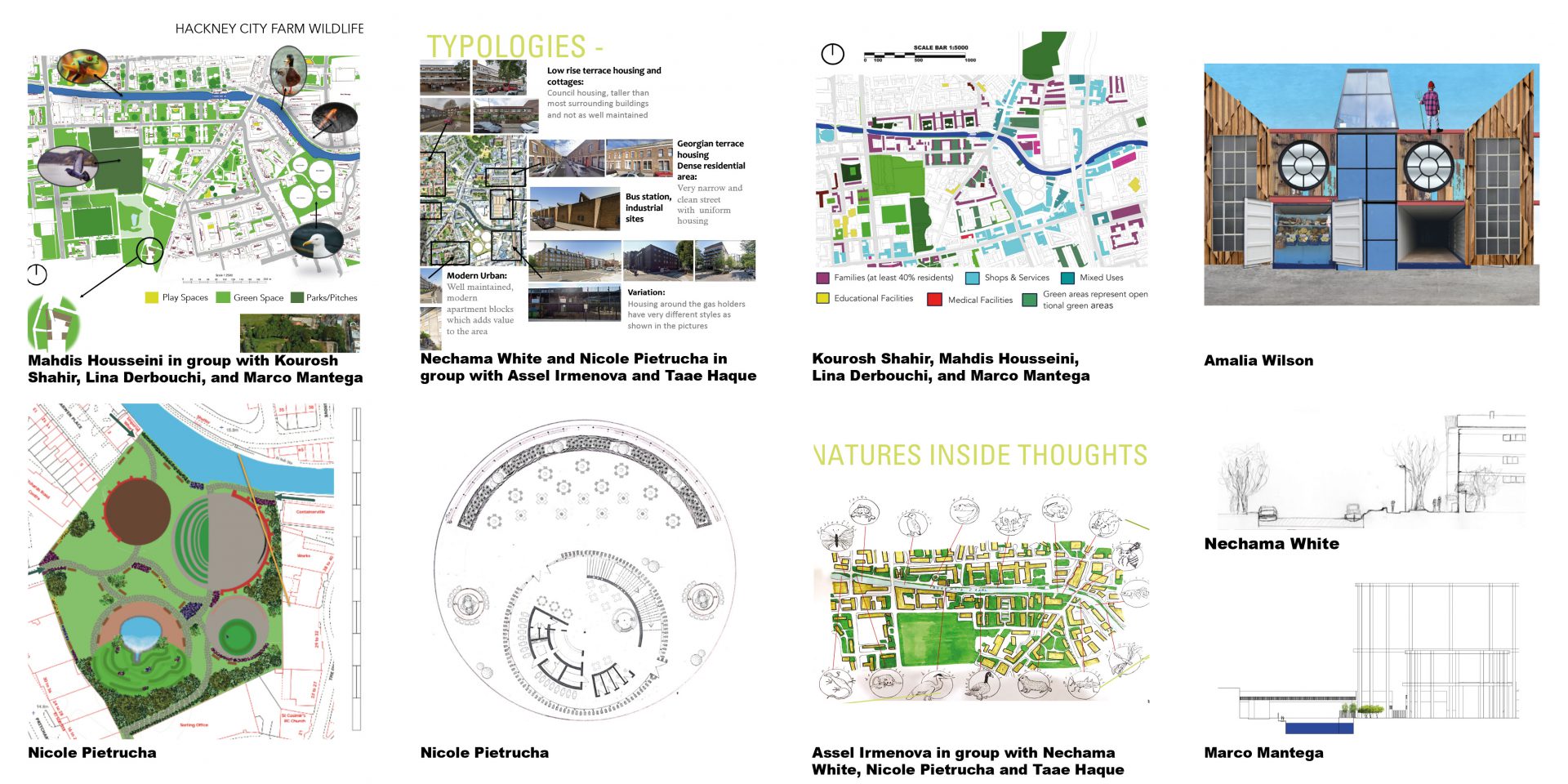Year 1 Studio - Integrated Sustainable Neighbourhood
Tutors
Roudaina Alkhani
r.alkhani@Westminster.ac.ukDr Roudaina Alkhani,u00a0FHEA, is the Co-Course Leader of the BA Designing Cities and Senior Lecturer in Planning and Urban Design teaching BA and MA modules. She is theu00a0Founding Director of the practice Platforms for sustainable cities and regions with many years of experience from Europe and the Middle East. nEducated architect and planner, Roudaina has a strong interestu00a0in multidisciplinary approaches bringing together sustainability aims, planning, architecture, urban design, strategic approaches and design thinking to create opportunities for cities and places. Affiliate of UN-Habitat's Planners for Climate Action andu00a0a chartered Architect MAA of the Danish Association of Architects.n
Read More...Nouha Hansen
n.hansen@westminster.ac.ukArchitect ARB, RIBA Nouha Hansen is a Visiting Lecturer at the University of Westminster and an architect at Allies and Morrison Architects working on large-scale masterplans and landscape design projects in the UK and the Middle East. nNouha graduated from the University of Westminster with First Class Honours and Distinction. She has a special interest in the cross-overs of architecture, landscapes and the arts and how these contribute to understanding and shaping spaces and their use. Nouha has a sensitive approach to design and interest in the well-being and happiness of people and the environment, using design as a creative strategy to influence spatial experiences and life quality.n
Read More...We design sustainable and integrated neighbourhoods benefitting from London as our City Lab. Under the title More Canal, we focused on the Regent’s Canal at Broadway Market between Hackney and Tower Hamlet. The work explored the ecological and health potential of the Canal in North London, and unpacked the canal and waterways that have historically shaped the city’s spatial structure, and its ecology, economy, and society. The students worked in groups to assess the qualities, specific potentials and needs of the area using site-appraisal and urban mapping methods and engaging with city debate and policies. They developed creative sustainable urban strategies using the canal’s multiple opportunities as a spine for ecological, social and economic revival and for stitching the neighbourhoods together around the canal. Meanwhile the students explored the unique architectural, urban and ecological experience and the industrial typologies. The students then developed individual architectural and urban design propositions based on sustainability principles with varied themes: Readapting the gasholders, re-wilding and hanging farms, pocket parks, and green links, community and house-boaters’ hubs, recycling stations, and many more. A series of key lectures, digital site visits and skills workshops helped the students develop and communicate their projects.
Read More...









